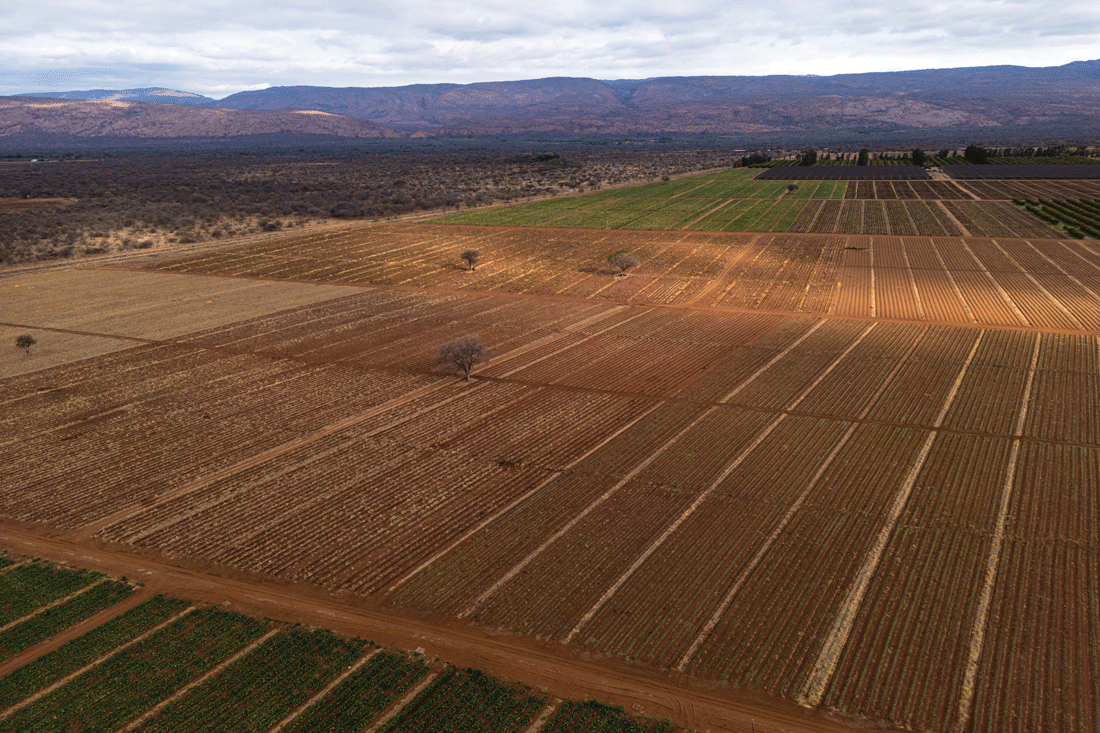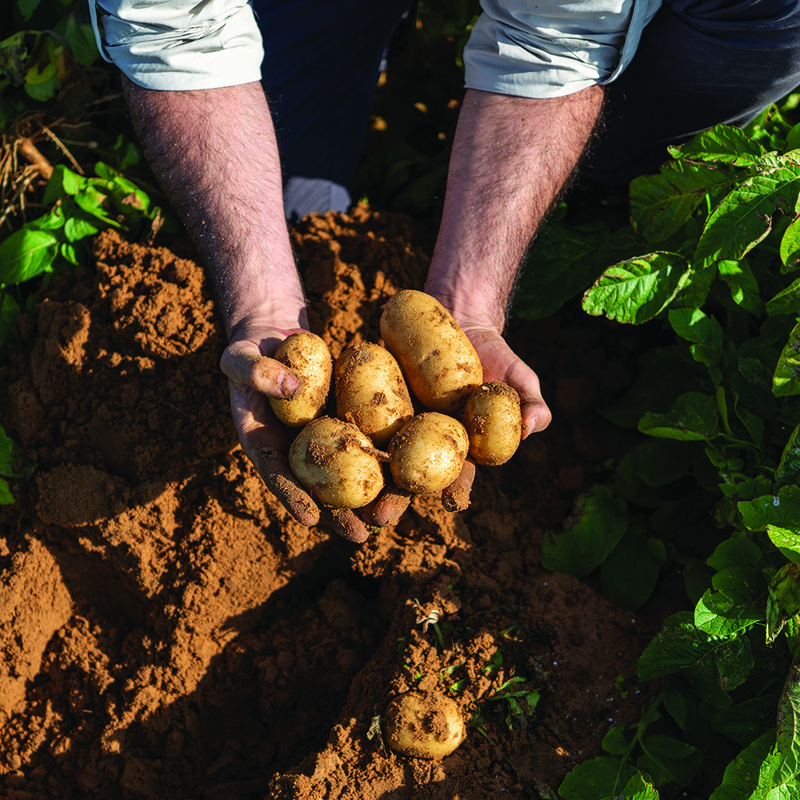When it comes to the farming way of life, there is growing and then there is selling. Raymond Da Costa was born and raised on one side in rural South Africa, his father a vegetable farmer who would sometimes produce a glut. On one occasion, Raymond took some of those surplus tomatoes and cabbages to sell from his own stall by the highway.
“I actually made too much money, so my dad took back half of it. My brothers and I had to pay him for the product, too. But it was a good learning curve.” Instead of following them into production, he became more curious about the part that comes after the harvest. “It seemed odd to me that farmers would look after a product for three months, then resell it to another business within 48 hours. That concept grew on me, and I thought I could do better on that side of the business.” His company, Farmwise, began as a potato marketing operation in 1987, before Raymond’s time, but today deals with a much wider range of vegetables from farms across Limpopo province in the South African Bushveld.
Bertus Otto and his brothers, for example, grow butternuts, green peppers and baby marrows (as well as melons, mangoes and papaya) in the shadow of the Soutpansberg mountain range, on land that has been in their family since 1911. Their farm, Secrabje, is marked by giant baobab trees, and the Ottos, too, have worked these fields since they were kids, says Bertus: “The whole point is to keep the soil healthy for generations to come.”
That soil is especially good, he explains, because it’s rich and sandy in a dry climate, with good drainage and few of the fungal diseases more common to rainier agricultural regions. “There aren’t many places in South Africa where you can grow these vegetables 12 months a year.”
A bit controversially, adds Bertus, as they’ve gone all-organic in doing so – using composted waste from the packhouses to fertilise that soil, and bees, their “natural allies”, to pollinate the plants, while deploying solar panels for cheaper, greener power. The resulting produce makes its way to Farmwise for packing and distribution in Johannesburg, and onward to Spinneys in Dubai, where our buyers value the sheer commitment of growers they source from, as much as the quality of their merchandise.
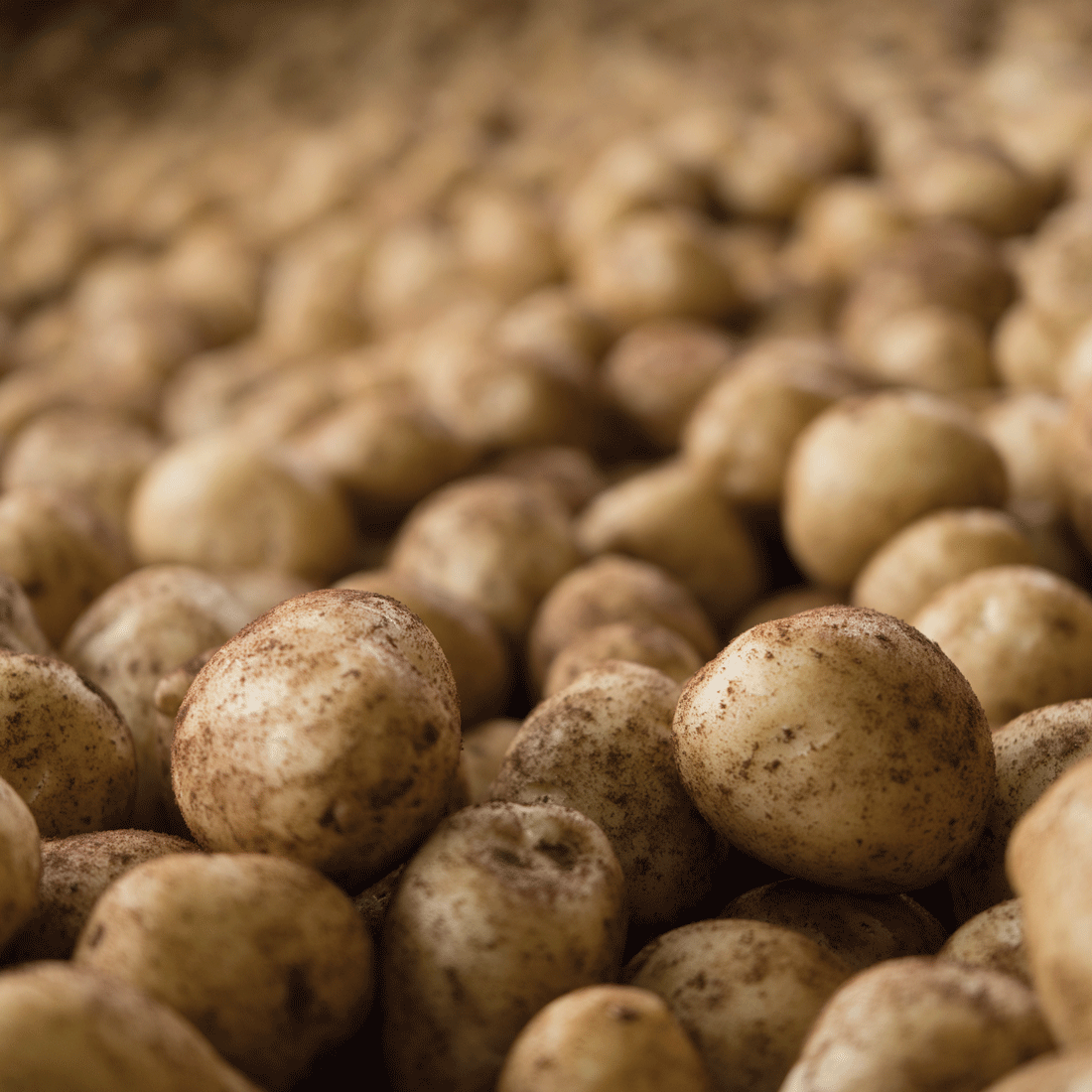
Freshly harvested potatoes
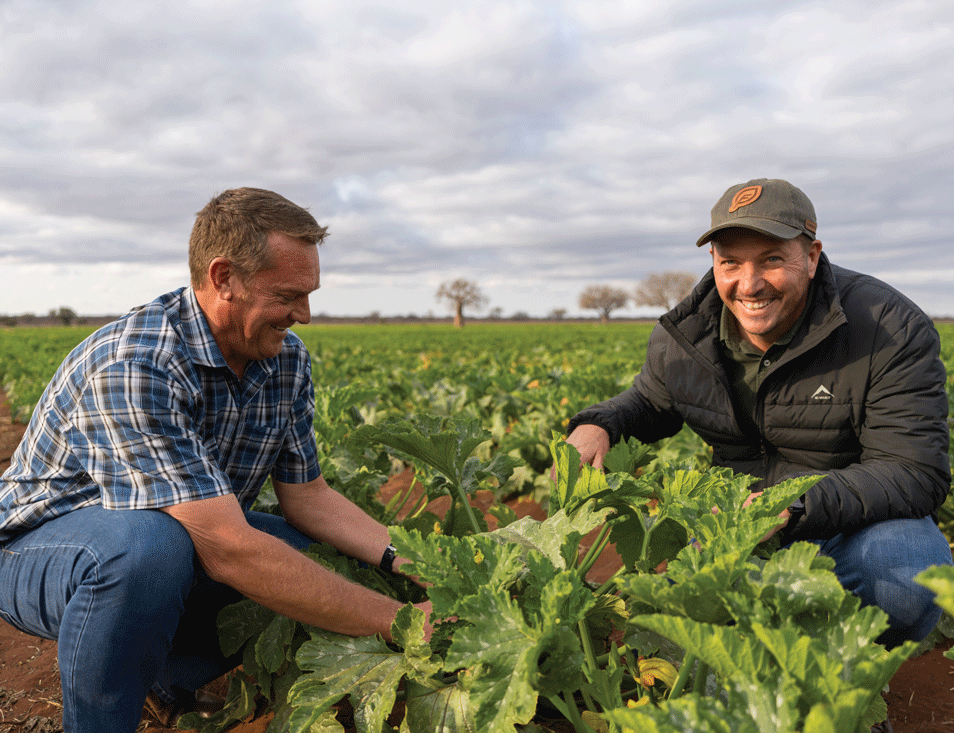
Bertus Otto and Raymond Da Costa are pleased with the baby marrow crop
Goods shipped from Farmwise also include a “prepared” range of root veg, such as sweet potato churros with salted caramel, and baby potato roasting kits with garlic butter. The baby potatoes began life in Limpopo, too, at the farm run by Clive Wiggill and his son Clifford. The latter attests to the value added by this sandy clay soil, “which works well to produce a nice white potato”. Asked if he eats those potatoes on a daily basis, he says, “Maybe only every second day.”
His father Clive has been farming for 43 years, though he started out in the Highveld region like his own father and grandfather. There are challenges that make the job harder these days, not least the rising cost of electricity, fertilisers, labour and fuel, but he loves this way of life and has no plans to ever retire.
“When I grew up it was one big pleasure to be out on the lands,” he says. “I wanted to do everything, whether it was planting or driving tractors. It’s a passion for me, and I’m going to farm as long as I live. Then my son will continue and hopefully my grandsons, too.”
Farmwise has worked with the Wiggills for 24 years now, and Raymond says the business has been built on such relationships. “This is one we value and want to keep building into the future.”
Another formed more recently is with the Van der Merwe family of Rooi Ivoor Boerdery farm in the Alldays region. They came from the Lowveld region some 20 years ago, but “only started farming sweet potatoes here a decade later,” says Willem van der Merwe. “Partly because we learned from Farmwise that there was a demand for them.” Willem and his father have since joined the chorus of farmers who cherish this Bushveld soil.
“Sweet potatoes grow much better here,” he says. “There’s not so much rain but we have some good water sources, and you can’t really plant in winter, but you can keep producing because the roots are good and strong under that soil.” Frost is a problem sometimes, in certain areas, he says. “And sometimes things don’t grow as well as you thought. But you’re never too old to learn, and it makes you more effective every year.”
Also in Spinneys’ prepared range are products sourced through another important partner, Fresh To Go. That company works with farms across Kenya, Zimbabwe and Mozambique, but also the Limpopo region of South Africa, procuring what commercial head Wayne Huxham calls “all the top-tier gourmet veg, if you like”. Tenderstem broccoli, asparagus and various mixed vegetable packs all make their way to Spinneys via Fresh To Go’s own distribution centre, and timely delivery can be tricky when the growing areas are so remote.
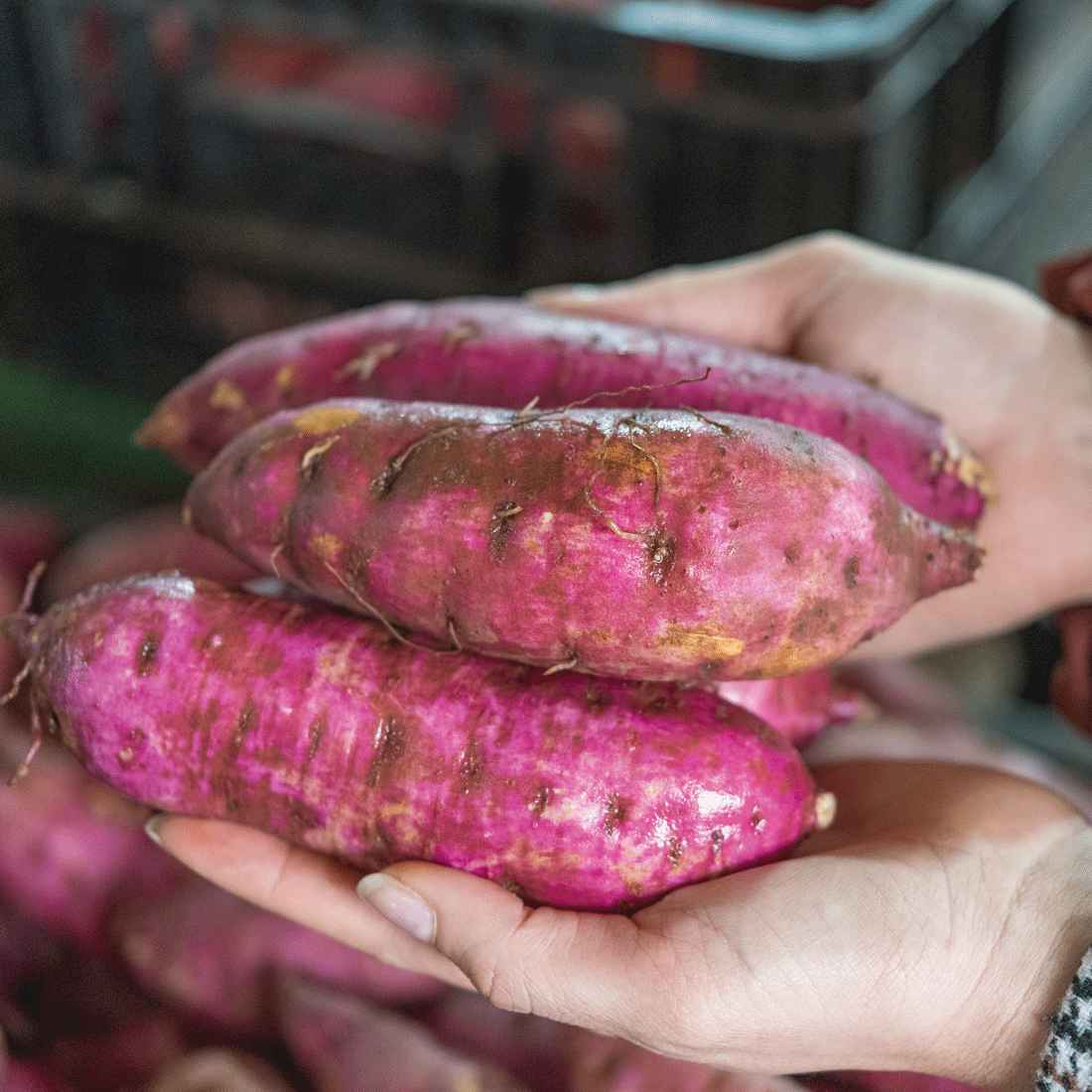
Sweet potatoes from Willem’s farm
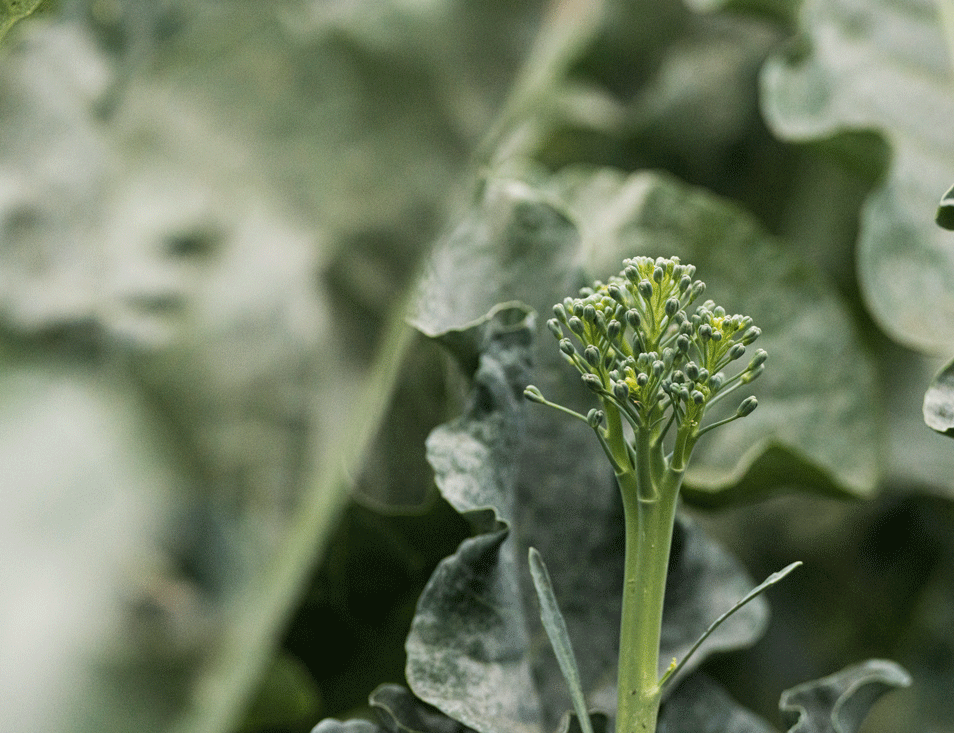
Tenderstem broccoli is a relatively easy vegetable to cultivate
“Getting the infrastructure there to get the labour in and harvest, that’s one of the biggest challenges,” says Wayne, who knows how it goes because he too grew up on a farm. Remoteness can be an advantage, too, though, as at Suikerfontein farm managed by Joan Kift, surrounded on all sides by vast expanses of game reserves.
“We keep about three-quarters of our own farm surface natural with wildlife, who we feed the remains of the tenderstems we cut off in winter. So only one quarter of the land is used for farming.” If Joan could, she admits, she’d grow nothing but that tenderstem broccoli here, simply because it makes for such an easy crop on this site. “Climate conditions are great for it, good sunlight, no real pressure from fungus or pests which would make things harder for us.”
Asparagus is not an especially demanding crop either, she says; the ferns cut off to decompose into the soil as part of the same “good harvesting practice” that will often leave a field to lie fallow for five years. “You allow it to grow to grass and root in soil that breaks down to form organic material.” Joan knows what she’s talking about as much as anyone in the business: she grew up on an apple farm, earned her masters degree in plant physiology, and later worked with South Africa’s Agricultural Research Council before joining Fresh To Go.
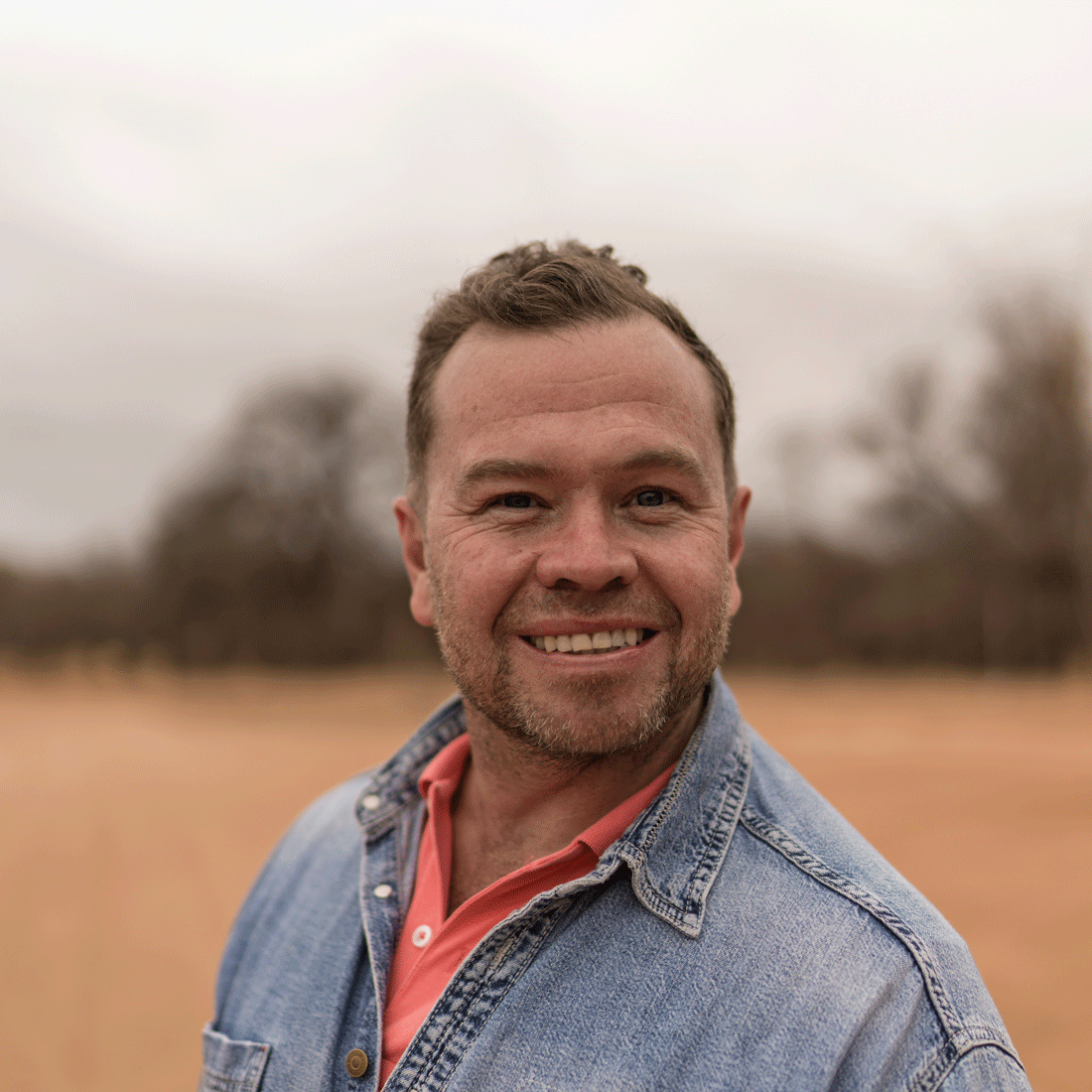
Wayne Huxham
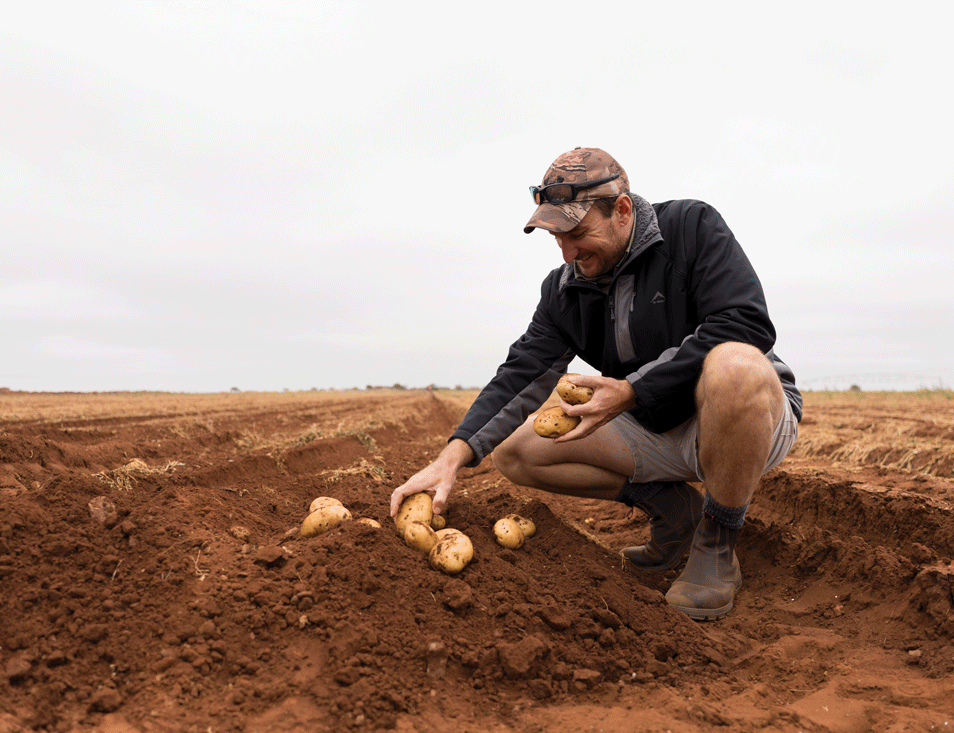
Clifford Wiggill
She was, in fact, due to retire when the company asked her to bring her considerable expertise to bear on this farm. There are challenges, of course, though perhaps less in this area than others when it comes to climate change. “We have a few warmer days, but if you manage the crop well, and it’s healthy, it’s not such a problem. And we plant in winter so we’re generally less affected.”
All the issues common to farming in other parts of South Africa “almost disappear in this region,” says Joan, because of the dual protections afforded by the relative lack of rainfall and the surrounding barrier formed by game territory. Even now the job remains a pleasure, she says, and like everyone else along these supply chains, she carries on with an abiding passion for this way of life. “I just love plants,” says Joan. “The greenness and the smell of soil. It’s all so natural to me.”
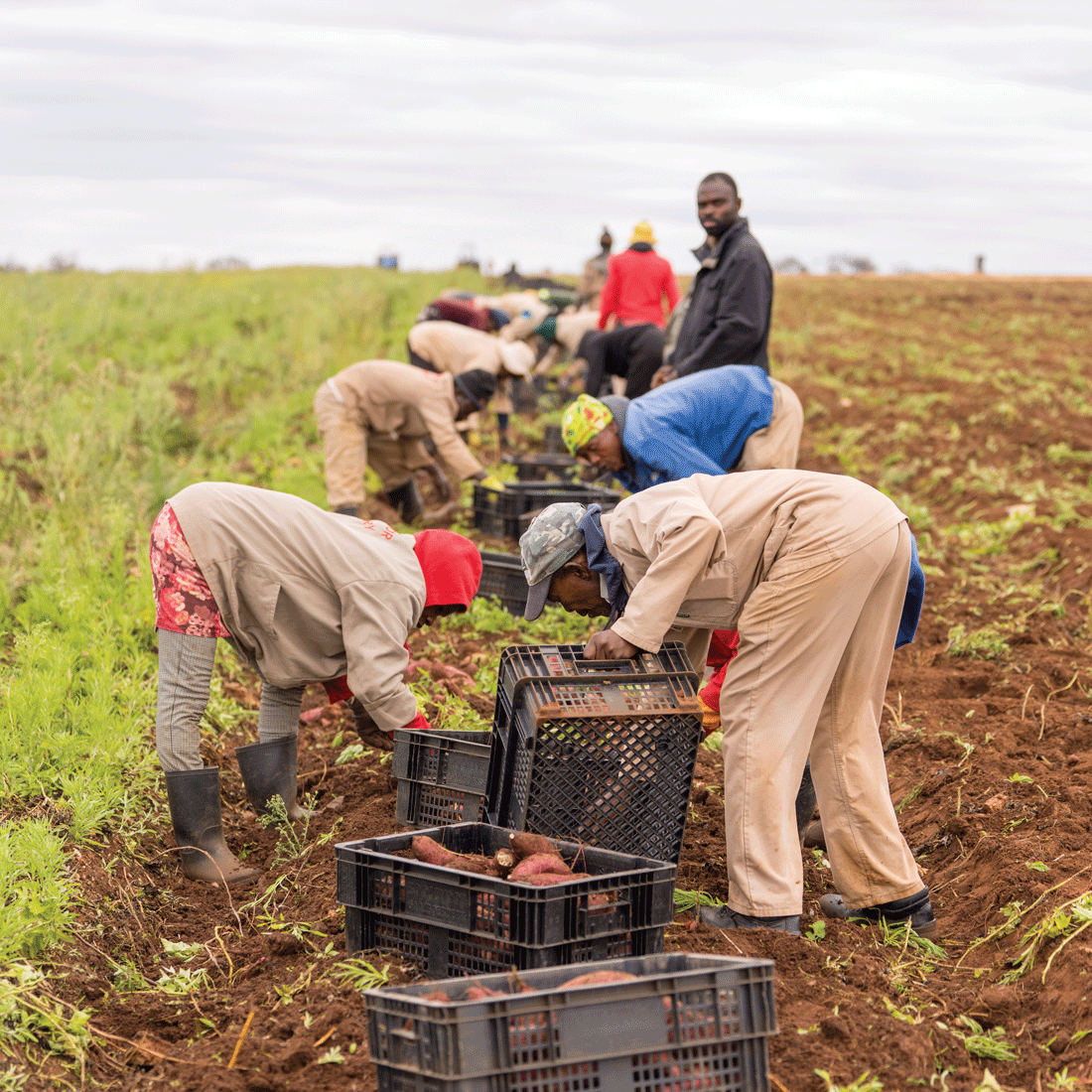
Harvesting sweet potatoes is labour intensive
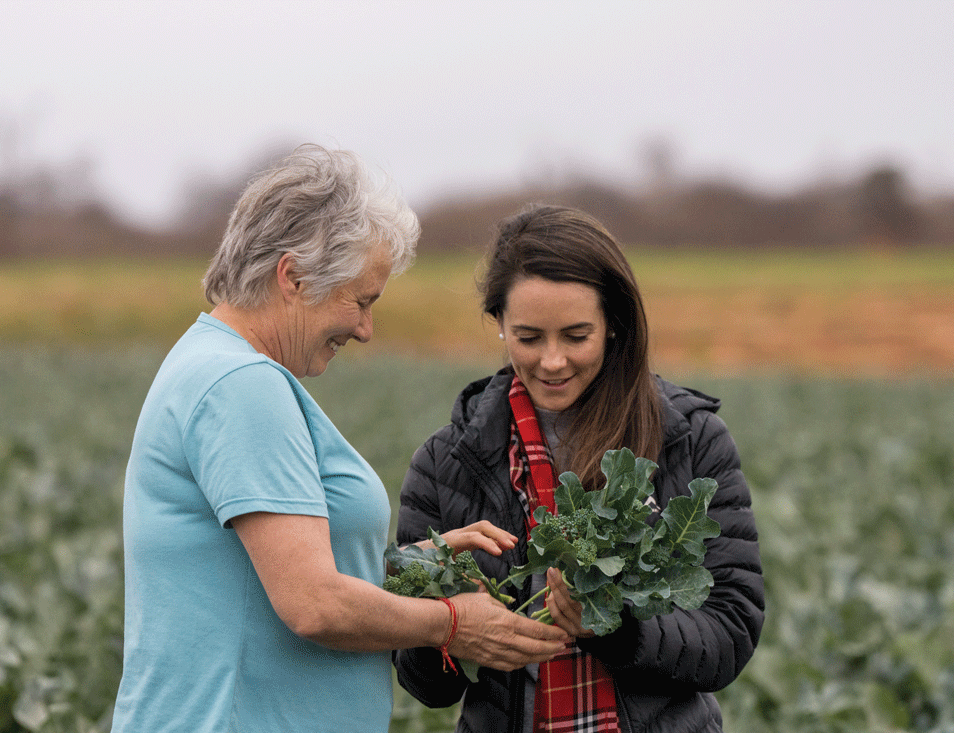
Joan Kift and Angelique Du Toit
Produce buyer of vegetables
Angelique says
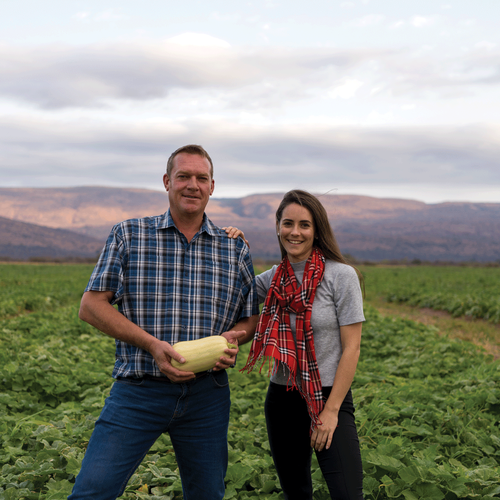
I have worked with Farmwise and Fresh To Go for over a decade. I have also worked directly with the Wiggills, Bertus, Willem and Joan, and I can vouch for their commitment to delivering quality produce. They all come from generational farming families that have a deep understanding of the land. We’ve chosen them to supply us with our key hero products such as Tenderstem™ broccoli, butternuts and sweet potatoes for our prepared vegetable lines because of the eating quality and their dedication to supplying consistently superior products on time.
